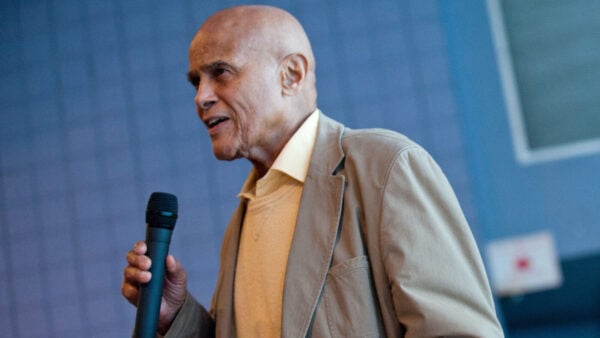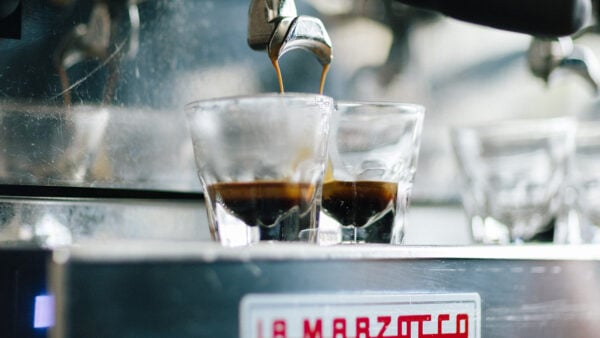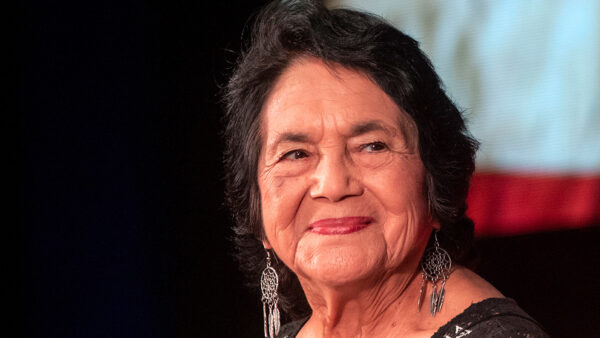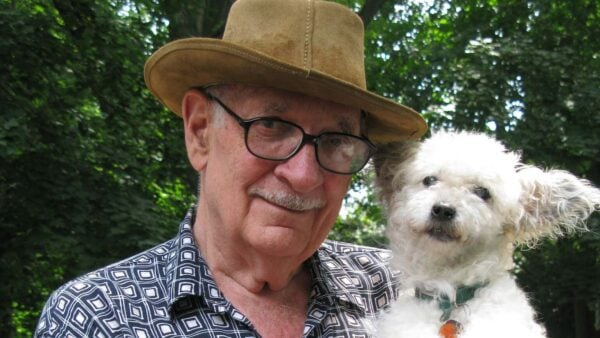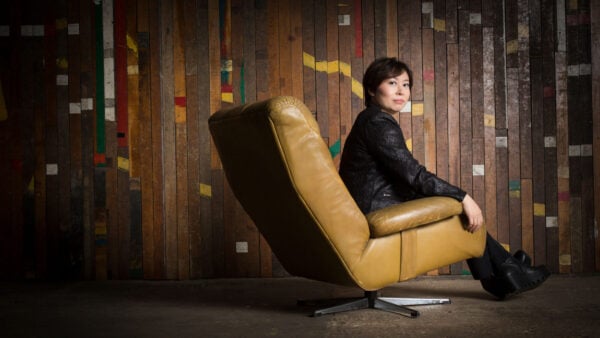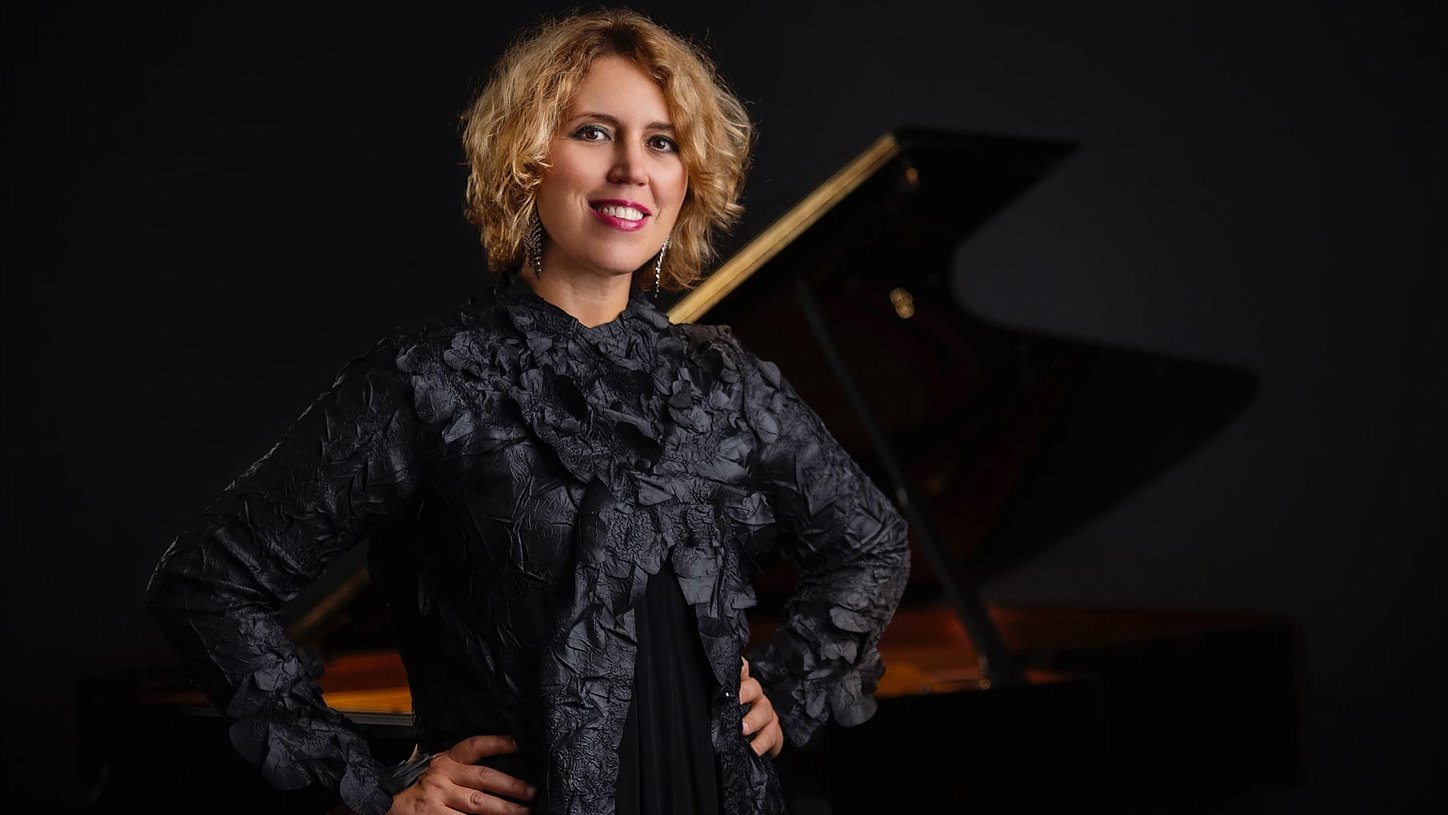
Gabriela Montero (Photo: Anders Brogaard)
Pianist, composer, and improviser Gabriela Montero is speaking out against corruption in Venezuela, her home country, using the most powerful way she knows how: music.
During Hugo Chávez’s term serving as “Eternal President of the United Socialist Party of Venezuela” from 1999-2013, tens of thousands of Venezuelans have been murdered by the government. In 2008, the Economist Intelligence Unit Democracy Index named Venezuela a “Hybrid Regime” and the least democratic country in South America.
Montero composed Ex Patria, a piano concerto dedicated to Venezuela and those who suffer there, in 2011. In the three years following the premiere of her piece, the United Nations has received 31,096 complaints of human rights violations in Venezuela, only 3.1% of which resulted in an indictment by the Venezuelan Public Ministry.
The virtuosa spoke about Ex Patria, the role of music in politics, and more.
Can you tell me about your piano concerto, Ex Patria, which you’ve just recorded on your new album?
I wrote Ex Patria in 2011 to honor the 19,336 victims of homicide that year in Venezuela. It is an act of dissent. It is an act of protest. I wrote it because I felt like as an artist I needed to make a photograph of what Venezuela is like. There were 25,000 murders in Venezuela last year.
It is really a piece that opens with a bit of nostalgia. Then the different instruments “corrupt” and steal the themes. It’s a piece where you’ll hear gunfire, you’ll hear oppression, you’ll hear the military. It’s a very powerful piece, but it’s a powerful piece because it’s an intense situation where people are suffering very much.
Why did you feel compelled to use music as a form of political protest?
The way that Ex Patria was born was really out of that sense of frustration and pain having received hundreds if not thousands of messages from Venezuelans telling me what they had gone through: kidnap, murder, expatriation, or just being in exile starting over and leaving everything behind – breaking up families, and everything that comes with the demise of a society.
I really wanted it to be a metaphor of what Venezuela has become in the last 16 years. I want it to be a storytelling moment that people really take with them, so it’s not just me giving numbers in a concert hall, saying “This is dedicated to 19,336 victims of homicide. But rather, an imprint, a musical imprint, that they carry with them forever after listening to the piece.
How did you start composing this piece?
It was very much done in large sections where I would say, “Ok, this is where I want to portray gunfire.” That’s something that everyone in Venezuela is exposed to, and where everybody knows someone who has been killed, either directly as a friend, as a family member – it is not uncommon to hear gunfire in Venezuela, you hear it all the time. I also wanted these kind of greedy, corrupt characters of the military and the government to appear very much like Prokofiev depicted – you know, like these fat frogs – as part of the whole portrayal. I want this piece to be about sound but about noise at the same time.
How is the piece structured?
It begins with this beautiful theme, almost like a recollection of a better time, of a childhood innocence which is then taken, mangled obliterated, it’s stolen. The audience really feels that’s happening, because you can see that in the orchestra, you can see the physical taking of a theme from an instrument to another, and this is what people feel, that their lives, their things, their dignity, their human rights have been taken from them and just crushed.
The middle section is a beautiful lament, it’s a moment of great sorrow. And I have to say this is the moment where I break down in the piece and I cry because I have this archive inside of me of stories of so many people who have come to me, to tell me, and to share them with me. This is where I want to be a vessel to convey those stories to the world.
After the beautiful middle section, where we all empathize with this pain, then again it’s taken, and it’s destroyed and it’s mangled, and it becomes one big chaos, and the piece ends with a gun shot. It’s a metaphor. It’s a very illustrative metaphor of present-day Venezuela.
You are well-known for your astounding ability to improvise. How did improvisation play a role in your compositional process for Ex Patria?
Because I am an improviser, which is really spontaneous composing in the end, most of the piano part was done in big segments of improvisation. It just came out. It just flowed. And of course the challenge for me was to learn that, because it’s almost for me as if it’s a different part of my brain.
So that was an interesting process for me: to have the score and say, “God this is difficult! Why did I do this?!” And to have my husband in the next room say, “Well you wrote it, so you can’t complain to the composer, no?” It was very much like that with the orchestra.
It would be very clear what I wanted the clarinet to play or what I wanted the trumpet to play, and the orchestration came as a very organic development from the piano part, which is the main voice in this piece really. All the other elements are somehow the corrupter affecting the solo piano. So it was very much done in layers. It was a very quick birth, let’s say!
There are many ways that a soloist in a concerto can interact with the larger ensemble. Can you describe the dynamic between the solo piano part and the orchestra in Ex Patria?
It’s relentless, and that’s what I really wanted to create, this tension, this anxiety. The piano part is extremely difficult, not only because of what it is written, but how it’s meant to be played. It requires a lot of force and a lot of stamina. It’s meant to be suffering.
You have to physically suffer things some times to emote what you want, for it to be real. I wanted the audience to feel a bit suffocated – of course I don’t want to put of listeners from actually listening to it, because it’s a beautiful piece. But it’s a piece that has a greater significance than just music making.
What other composers who have composed protest music have inspired you?
Music that is protest driven is usually quite difficult, not only the result but the process, and what people give up to be a part of that process. Shostakovich, the way he very painfully and painstakingly tried to depict in his works…Prokofiev, in the way that he used his humor to ridicule what he detested and those he detested… It’s very important to use humor as well as a tool of somehow being antagonist and being opposed to something.
I think that characters who have stood up against tyranny, and who have used their craft to speak against it, and who have used their music as a tool to inform and report – these are my heros. Someone like Casals, or Rostropovich, who also took a stance against the regime that he was opposed to. Any opportunity that anyone has taken in the past or present to speak issues that are relevant for me deserves a handshake. That’s how we should be using our voices.
Of course, it can be hard for a woman to express her voice in a world dominated by men. Have you ever experienced obstacles as a woman who is a classical musician?
I think this is a very difficult career for women in general – not because we can’t handle it in general, but because the whole nature of the fact that women are the creative the voice that we are and the life giving force that we are. When you’re a mother and you’re an artist, it’s very hard to successfully live in those to worlds and to split yourself. You want to give everything to your children, you want to give everything to your art – so that’s a challenge in itself.
It’s still a very male-dominated world. There are challenges in the way that a woman artists is meant to be more of a product than it was in the time of Myra Hess, or in the time of Annie Fischer, where physique and that part of the fantasy of a woman performer was not even relevant. These women were great artists, independently of what they looked like. I think that Martha Argerich really broke the mold because she was the smoldering, beautiful, sexy, volcanic, crazy, incredible pianist, and she really was a different animal in that time.
I think the pressures on women are very different from what they were 50 years ago, and that cannot be taken lightly, because the whole career has changed. I don’t think I’ve ever personally encountered any real machismo or anything like that myself.
Have you encountered any other struggles throughout your career?
My struggle has been more to have the people understand that what I do as an improviser, as a pianist, and as a composer are all an integral part of who I am, as a woman, and as an artist. The conversation about whether or not you’re a jazz musician if you’re an improviser is one that I’ve had to have many times. And I say, “No! I am a classical concert pianist, and I am classical improviser!” That is the world that I live in, that is the world that I make music in. There’s no need to divide – “You’re an improviser… you’re classical… you’re jazz..” No!
Who was Mozart? Who was Beethoven? Chopin? Liszt? These were great composers and they were great improvisers. So that has been more the challenge – how in this more conservative classical world that we live in today, as opposed to the 18th or 19th century when things were so much more open and creativity was more across the board, how to make people understand that we don’t need to divide it. That’s what my new album is about: Gabriela Montero, the composer, the pianist, the improviser – as one, which is what I am.
Why do you think your performances as an improviser are so powerful for audiences?
So many young people come up to me after a recital where I improvise the second half. I do about 6 improvisations. They’ve given me their favorite pop theme, and then I do a 7 minute fugue let’s say on that – very complex… 5, 6 voices… and their excitement at hearing their favorite pop tune sound like Bach in that baroque language has been amazing for me.
I feel it’s been the best way to create that bridge across time. It’s very different to see a woman who is alive in front of you taking a style from so long ago and making your pop tune into that. The way they relate to it is very different than if they’re listening to a Bach partita for the first time, and they might not understand the language.
Improvisation can serve as a great equalizer. It can be not only a wonderful creative form for people to enjoy themselves but for them to bring the audience to understand that classical music very much alive and it’s very much about today. It’s a great way to get young people interested in classical music and to recruit them.
I feel with improvisation, it’s like a door that has to be open, and you jump in, and you don’t think, and you don’t judge, you just allow it to happen. That’s what it is for me. I hope to see more people enjoy that process – where they see music as a storytelling tool, rather than fast fingers, or loudness, or career, or success? No. It’s about the moment, and it’s about storytelling.
You have been performing and improvising since you were very young. Has it been difficult being in the public spotlight for nearly your entire life?
I’ve improvised since I was a very little girl, since the very beginning. I was seven months old. At a year and a half I was already playing and improvising. There was a time when unfortunately it was not very well understood what I did, because I was the only one, or maybe one of two, who could improvise in the classical world today. It’s very rare to see that. There was a bit of prejudice I guess, a bit of taboo, of seeing a classical artist sitting on stage and improvising – very complexly, but still, it’s improvisation. That element was something that I had to educate the public and the promoters about what it is that I really do, and to get away from that stigma that improvisation is arpeggios or ornamentation or whatever. No. It’s composition!
One very memorable composition you have played is John Williams’s “Air And Simple Gifts” at the 1st presidential Inauguration of Barack Obama in 2009 – a very different kind of political performance! Can you tell me about that?
It was amazing not only because musically it was such a great group and great family to be with. But it was a moment of reconciliation for this country, of healing, of joy, of just overcoming a difficult history, or at least the beginning of overcoming it. I have nothing but admiration for the Obamas, and I was so happy and so honored to be a part of that day.
For more informational about Gabriela Montero and her new album, visit her website.
For more information in English about events taking place in Venezuela as viewed by local journalists, visit El Universal‘s website.

